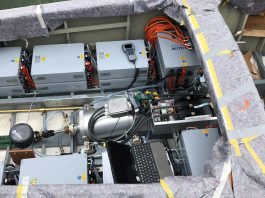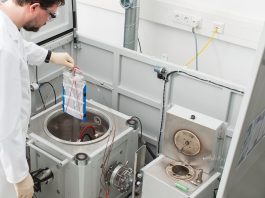Battery calorimetry could be an essential step in the electrification of global transport industries, by ensuring the safety of lithium-ion batteries.
Calorimetry is the process of measuring heat data during chemical reactions. Battery calorimetry allows researchers to collect quantitative data on the thermal behaviour of batteries, potentially ensuring battery safety.
Risks of overheating in lithium-ion batteries
Batteries in use generate heat. If this heat is not regulated then the battery’s temperature rises, potentially causing a fire. Single cells are easy to cool, however, when the cells are stacked together it reduces air circulation making the battery difficult to cool.
The development of a safe lithium-ion battery could be an essential step toward the electrification of transport, in addition to solving major problems in stationary energy storage. An uncontrollable increase in temperature, also known as thermal runaway, can cause the battery to set on fire or even explode, releasing toxic gases.
The influence of ageing on lithium-ion cells is critical to their commercial applications. Regular use in conjunction with varying charge and discharge cycles can lead to unpredictable thermal runaway.
Why calorimetry is essential to promoting battery safety
Calorimetry is crucial to understanding the thermal behaviour of lithium-ion batteries. Information on battery temperatures can be used to adapt the battery and thermal management systems.
Calorimetry allows researchers to find new correlations between different safety and thermally related parameters. This field of battery research can source data on heat capacity, thermal conductivity and material suitability.
Battery safety is dependent on calorimetry’s ability to provide information on how many watts a cell will produce under various conditions. This data allows researchers to adapt the batteries and create suitable thermal management systems.
Battery calorimeters, such as those developed by Dr Carlos Ziebert at the Karlsruhe Institute of Technology, will help the European industry make further progress in the field of battery development, which is urgently needed to reach a low-carbon future.









